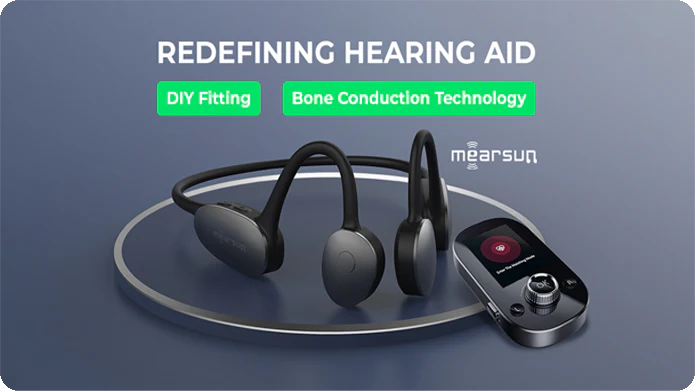This means that bone conduction hearing aids not only compensate for hearing loss with minimal volume amplification but also fully utilize residual hearing for satisfactory auditory outcomes, whereas air conduction aids merely cover the hearing loss without effectively utilizing the remaining hearing capacity.
For individuals with mild to moderate hearing loss, bone conduction hearing aids offer several advantages over air conduction hearing aids:
-
Minimal Volume Amplification: Bone conduction hearing aids transmit sound vibrations directly to the skull, which then conducts the sound to the inner ear. This method can achieve relatively good auditory results at lower volumes. In contrast, air conduction hearing aids amplify sound but may not provide clear auditory information at lower volumes, especially in noisy environments.
-
Maximizing Residual Hearing: Bone conduction hearing aids utilize the skull’s conductive properties to make the most of the user’s remaining natural hearing. This means that even if the user has partially functioning auditory nerve cells or inner ear functions, the bone conduction hearing aid can transmit sound effectively, offering a more natural and comfortable hearing experience. On the other hand, air conduction hearing aids tend to cover the entire frequency spectrum to compensate for hearing loss, potentially not taking full advantage of the remaining hearing capacity.
-
Satisfaction with Auditory Outcomes: Because bone conduction hearing aids can provide a hearing experience closer to natural hearing and deliver relatively good sound quality at lower volumes, they typically meet the satisfaction requirements of individuals with mild to moderate hearing loss. This is particularly important in daily life, as users not only need to compensate for hearing loss but also want to perceive their surroundings as naturally as possible.
In summary, bone conduction hearing aids offer better hearing protection and satisfaction for individuals with mild to moderate hearing loss. They compensate for hearing loss with minimal volume amplification, fully utilize residual natural hearing, and provide a more natural and comfortable auditory experience.


Share:
What protective benefits do bone conduction hearing aids offer compared to traditional air conduction hearing aids?
Mearsun Bone Conduction Hearing Aid Product operation video